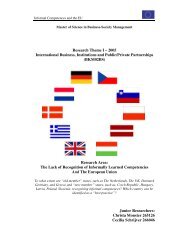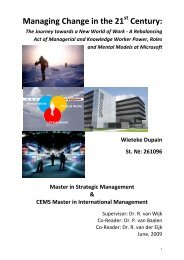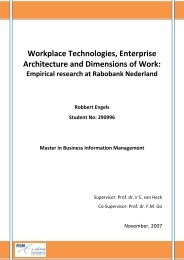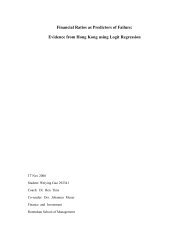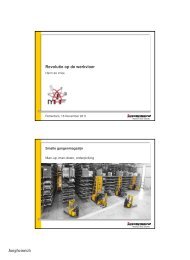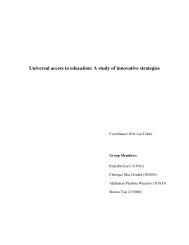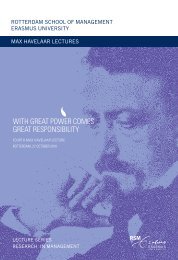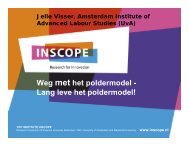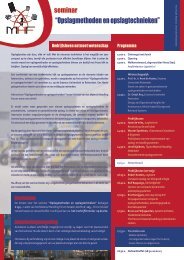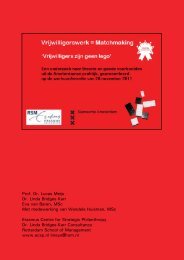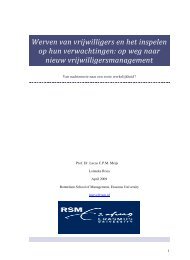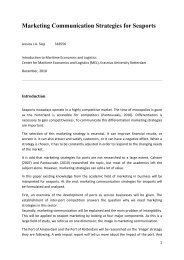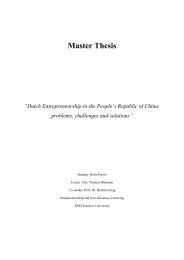here - ERIM - Erasmus Universiteit Rotterdam
here - ERIM - Erasmus Universiteit Rotterdam
here - ERIM - Erasmus Universiteit Rotterdam
Create successful ePaper yourself
Turn your PDF publications into a flip-book with our unique Google optimized e-Paper software.
A validation Study of House of Quality key performance indicators<br />
interaction/solidarity, safety and information merely explain 24, 3% of the variation in the overall<br />
performance of the online union.<br />
5.3 Implications<br />
The House of Quality directly links the technical requirements to the needs of the members and<br />
t<strong>here</strong>fore can be considered to be one of the most untainted instruments for improvement (Akao,<br />
1990). Two types of data were integrated in the House of Quality. First of all the gaps between the<br />
expectations and perceptions of the online union measured by the method of the SERVQUAL model<br />
and secondly the Kano category to indicate the influence of each item on member’s satisfaction.<br />
The method of quality function deployment is used to provide De Unie direction for informed<br />
decision making. First, by questioning the members’ needs; and, second by tailoring the design of the<br />
online union. Continuously, to match the demands of the members as closely as possible in a<br />
responsive manner.<br />
What are the main implications of the House of Quality results?<br />
For one, “Digitalization” is observed as the most important in the ongoing process of improvement<br />
and enables the online union to meet the widest collection of member’s needs. Subsequently,<br />
translate such needs into desirable and valuable services to generate and maintain a cash flow on<br />
which De Unie depends for its growth and survival. Although the online union already is an<br />
organization that functions online, the concept of digitalization should be understood as a<br />
continuous process of versioning information. Shapiro and Varian (1999) refer to ‘versioning’ as a<br />
technique to lever ‘value-based pricing, i.e., to sell the online union’s services to different members<br />
at different prices will certainly help to improve services of and offers opportunities to meet the<br />
most important member requirements. Value-based pricing of services affords the development and<br />
exploitation of two-way communication with members and stakeholders. Such online approach<br />
affords De Unie the opportunity to obtain valuable market data without expensive and time-<br />
consuming marketing studies. Simply, by offering members and third parties a menu of services and<br />
monitor which one they choose. For instance, De Unie can offer a product line with one product<br />
offered at members and another one at ‘outsiders’ and observe sales figures to observe purchase<br />
patterns in both markets evolving. Shapiro and Varian (1999:54) refer to this technique as<br />
‘versioning’. Digitalization in this case enforces the opportunity to connect different parties in the<br />
network of the online union. T<strong>here</strong>fore it enables interaction between De Unie and her members,<br />
mutual between members but it can also enforce the integration of third parties. From this<br />
72




